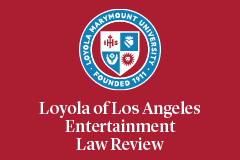Abstract
With the explosion of the documentary form, documentaries have increasingly integrated the storytelling strategies, production techniques, and performative aspects of scripted television drama. While the news and entertainment industry may regard these as matters of aesthetics, ethics, or artistic expression, a number of recent lawsuits suggest that audiences perceive them as deceptions with legal ramifications. This Article defines and analyzes the term “documentary” from a legal perspective, and identifies the point at which a documentary’s use of fabricated materials, selective editing, producer-controlled situations, and other “documentary deceptions” implicate legal liability. Ultimately, this Article concludes that while a “documentary” does not promise truth, when the term is used in the context of a contract, it does promise that the work is comprised of documentary evidence chronicling actual facts, events, processes, or people. A work that substantially deviates from this standard may amount to breach of contract or breach of warranty. Conversely, if a work is deceptive in some respect, it does not produce legal liability. Instead, that deception either precludes the work from meeting the objective definition of “documentary” or renders the work “defective.”
Recommended Citation
Kimberlianne Podlas,
Artistic License or Breach of Contract? Creator Liability for Deceptive or “Defective” Documentary Films and Television Programs,
33 Loy. L.A. Ent. L. Rev. 67
(2013).
Available at: https://digitalcommons.lmu.edu/elr/vol33/iss1/3


